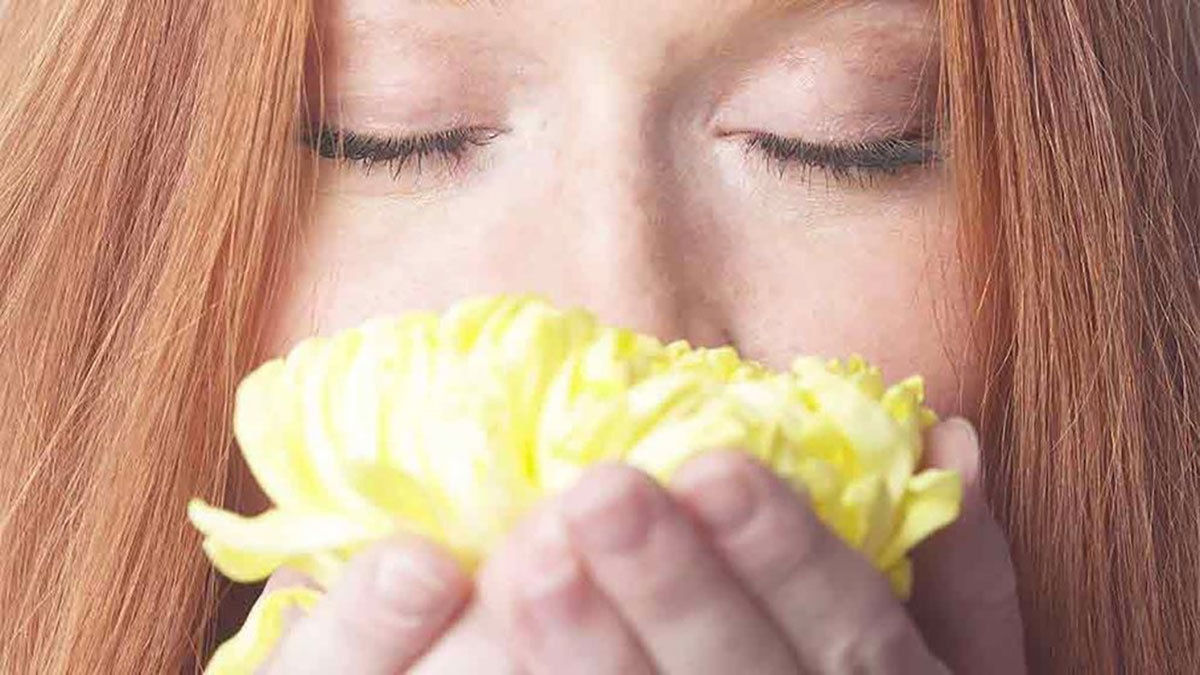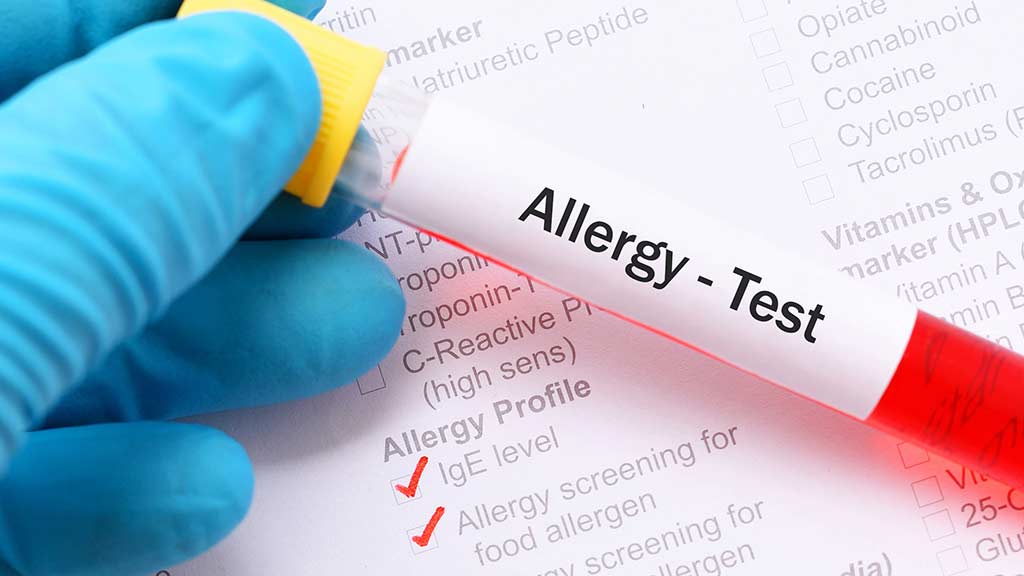Get our independent lab tests, expert reviews and honest advice.
What’s the best hayfever treatment?

Need to know
- People respond differently to different drugs, so if you've tried one type of antihistamine or corticosteroid and found it didn't help, try another
- All hayfever medications have side effects and can interact with other drugs
- If you've never taken hayfever medication before, or you're trying a new drug, consult your doctor or pharmacist to make sure it's safe for you
The misery of hay fever is nothing to sneeze at – but help is at hand. We take you though the options when it comes to allergy relief and help you choose the right medication for your symptoms.

What is hay fever?
Hay fever is an inflammation or swelling of the nasal lining, which may cause congestion, a runny nose, itchy throat, watery or itchy eyes and/or sneezing. Hay fever has two forms:
- Seasonal allergic rhinitis tends to occur in spring and summer due to an allergy to pollen from grass, weeds and trees.
- Perennial allergic rhinitis has similar symptoms and may be triggered by dust mites, animal dander (particularly that of cats) or mould spores, and can occur throughout the year.
Affecting almost 20% of Australians, hay fever can have a significant impact on sufferers, causing lack of sleep and reduced productivity at work or school. Although it can’t be cured, the symptoms can be managed to some extent. An allergy test can determine the source of the problem, which in turn can help with prevention and treatment strategies – avoiding or limiting exposure, for example.
Hay fever treatment options
Antihistamines and corticosteroids are the mainstays, but there are several other treatments which may suit some sufferers.
Corticosteroid nasal sprays are the most effective hay fever treatment.
Many people think that a blocked or stuffy nose is caused by thick mucus, such as when you have a cold. In fact, nasal congestion results from the blood vessels in the lining of the nose becoming swollen, which affects breathing and gives that blocked-up feeling.
Corticosteroids (and other decongestants) work by reducing inflammation in the blood vessels of the nose, helping relieve a runny nose, congestion, itching and sneezing.
Most don’t help with eye symptoms (although there are corticosteroid eye drops), but Fluticasone furoate (Avamys) has – it’s been claimed – provided relief for watery, itchy or red eyes.
How to use corticosteroid nasal sprays
The effectiveness of corticosteroids depends on having a steady dose over time. However, if used for long periods of time (many products suggest six months) your doctor should check the lining of your nose for changes.
They don’t work instantly, and it may take several days – or up to two weeks – for corticosteroid sprays to attain their full effectiveness. Your doctor may recommend using them before allergy season starts. If there is no improvement within a few weeks, see your doctor. Don’t increase the dose.
Side effects of corticosteroids nasal sprays
The main potential side effects are headaches, nosebleeds and damage to the nasal passages, and a bad taste or smell.
Not recommended for…
Corticosteroids inhibit wounds from healing, so shouldn’t be used if there are existing wounds or after nasal surgery. Nor are they recommended for people with a tendency toward nose bleeding, people with a severe nasal or sinus infection, or a history of tuberculosis.
Products
Some of the many sprays available include Nasonex (Momentasone) and Beconase (Beclomethasone). Some are available over the counter, and your pharmacist may be able to suggest one. However, others are prescription only, so if you find the over-the-counter sprays are not helping, consult your doctor.
Bottom line
Prevention is better than cure, so corticosteroid nasal sprays are the most effective treatment option available provided they’re used consistently. They relieve existing symptoms, including congestion, and can prevent them from occurring. However, nasal sprays may not suit people with nasal passage injury or those who are susceptible to nose bleeds.
Antihistamines work by blocking the chemical messenger, histamine – the main trigger of allergy symptoms in the nose and airways. They can help with a runny nose, watery eyes, sneezing, and itchy nose and throat, but generally don’t relieve congestion (though azelastine, an antihistamine spray, does appear to help).
How to use oral antihistamines
If you take them regularly they build up in your system and can help prevent histamines being released. Your doctor may recommend you start taking them a couple of weeks before you normally start to get symptoms.
If you take them regularly they build up in your system and can help prevent histamines being released
Side effects of oral antihistamines
The main side effects include dry mouth, nose, or throat, hoarseness, headache, dizziness and nausea. These are generally mild and don’t last long. Unlike older antihistamines, these so-called second- or third-generation antihistamines claim to be non-drowsy.
A possible exception is cetirizine (brands include Zyrtec and Alzene), which appears to have more of a sedative effect in some people than other antihistamines.
The others list drowsiness as a potential side effect and warn that you should see how they affect you before taking them prior to driving or operating machinery.
Products
There are several different types of oral antihistamines on the market and no one product is best for all people in all situations. Some drugs work better for some than others, so if one hasn’t worked for you, or has stopped working, try a different one. Many are available over the counter, such as Claratyne (Loratadine), Zyrtec (Cetirizine), Telfast (Fexofenadine), but some stronger ones need a prescription, so consult your doctor if you haven’t found one that works.
Generic versions of some of these are also available – look for the drug name.
Bottom line
Antihistamine tablets prevent and treat most symptoms except congestion, and a few come in formulations suitable for children. Side effects are usually mild, but even non-drowsy formulations can make some people sleepy.
You can reduce some of the side effects associated with antihistamines by using a nasal spray, which acts in the nasal passages. Azelastine (brand name Azep) is available as a nasal spray and, like its tablet counterparts, it helps with a runny nose, itching and sneezing, and also has a decongestant effect as well.
Some studies have found it’s as good as or better than oral antihistamines, and when used with the corticosteroid (fluticasone propionate), the combined effect is greater than the effect of either used alone. A product called Dymista (made by the same company as Azep) which contains both ingredients is available by prescription only.
An antihistamine spray may be worth trying if you have congestion as well as other nasal symptoms
Side effects of antihistamine nasal sprays
The main potential side effects are bleeding nose, nasal irritation, nausea, headache and bad (bitter) taste in the mouth. A flavoured drink after the spray can reduce the bitter taste.
Bottom line
An antihistamine spray may be worth trying if you have congestion as well as other nasal symptoms, and it’s less likely to cause drowsiness, though it may cause nasal irritation or bleeding.
Pseudoephedrine is a decongestant and is found in cold, flu, and sinus relief tablets. It’s also sold combined with antihistamine in tablets for hay fever.
Preparations such as Telfast Decongestant (Fexofenadine + pseudoephedrine) and Claratyne-D (Loratadine + Pseudoephedrine) are sold behind the counter in the pharmacy because they contain pseudoephedrine, and you may need to show identification to buy them.
Phenylephrine, which is sometimes used instead of pseudoephedrine, isn’t effective for hay fever.
Preparations containing pseudoephedrine are sold behind the counter and you may need to show identification to buy them
Side effects of pseudoephedrine
In addition to the possible side effects from antihistamines, those related to pseudoephedrine include insomnia, nervousness, excitability, dizziness, fear or anxiety, rapid heartbeat, tremor and hallucinations.
Not recommended for…
You should consult your doctor before taking these products if you have high blood pressure, heart conditions, diabetes, glaucoma, anxiety, depression or prostate disease.
Bottom line
These medications offer the symptom relief of antihistamines, along with a decongestant. Pseudoephedrine is a stimulant and shouldn’t be used by people with certain medical conditions – talk to your doctor or pharmacist.
If your hay fever is so severe it dramatically impacts on your quality of life (if the symptoms are debilitating or keeping you at home, for example), your doctor may recommend immunotherapy. This means taking regular doses of the allergens that affect you, starting with very small doses and getting larger over time.
The doses are usually given by injection, though there are also drops or tablets that are placed under the tongue. Injections are less expensive, and may be more effective, but are less convenient: it means going to the doctor’s surgery once a fortnight (or possibly once a week, getting less frequent over time), having the injection and waiting around for 30 minutes or so to ensure there’s no severe reaction (such as anaphylaxis).
Therapy takes three to five years … and while it will make some symptoms more manageable, it probably won’t completely resolve the problem
The therapy takes three to five years, and you may need maintenance injections at the beginning of allergy season thereafter. You’ll need to continue your other medications while receiving treatment, and while it will make symptoms more manageable, it probably won’t completely resolve the problem.
When applied in a nasal spray, ipratropium bromide acts on the mucus glands to reduce the secretion of mucus. So although this treatment option helps stop a runny nose, it may not help with congestion or other hayfever symptoms such as sneezing.
Bottom line
Helps stop a runny nose. That’s about it.
Decongestant sprays – which help when you have a cold – can also help with hay fever.
How to use a decongestant nasal spray
Used for more than a few days they can make congestion worse, so their usefulness for hay fever is limited to short episodes only.
Oral decongestants (pseudoephedrine) can be used for longer than the spray.
On the other hand, sprays are faster acting than tablets because tablets need to be absorbed into the bloodstream from the stomach and make their way to where they’re needed, whereas sprays are quickly absorbed into the blood vessels in the nose.
Bottom line
These sprays can help relieve congestion when fast relief is required, but should only be used for a few days.
Antihistamine tablets and liquid are useful for treating red, itchy, watery eyes, but if you’re only taking them for those symptoms, then medicated eye drops might be a better option. You could also pair a nasal spray with eye drops to treat a combination of symptoms.
Bottom line
If your main concern is eye irritation, medicated eye drops may be all you need. Eye drops containing decongestant should only be used for a few days at a time.
Top tips for taking hayfever medication
- If you’ve never taken hayfever medication before, or are trying a new drug, it’s a good idea to consult your doctor or pharmacist to make sure it’s safe for you.
- People respond differently to different drugs, so if you’ve tried one type of antihistamine or corticosteroid and found it didn’t help, try another.
- All hayfever medications have side effects, can interact with other drugs, and shouldn’t be used by people with certain conditions or with allergies to ingredients.
- If you’re pregnant or breastfeeding, ask your doctor whether the potential benefits of medication outweigh the risks.
- Before giving hayfever medication to a child under 12, consult your doctor for advice – some medications aren’t suitable for young children, and some come in a child-friendly form such as drops or syrup. Read more about treating kids for hay fever.





